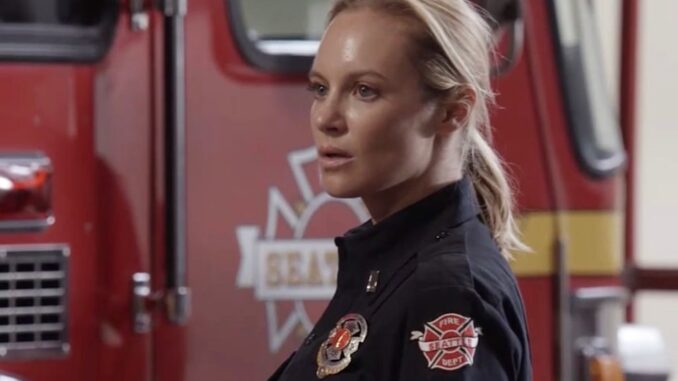
The Cracks in the Facade: Danielle Savre, Maya's Past, and the Promise of Light with Jack in Station 19 Season 3
In the high-octane world of Station 19, where fires rage and lives hang in the balance, the personal dramas of the Seattle firefighters often burn just as intensely. Among the most compelling character arcs is that of Maya Bishop, a woman whose Olympic-level discipline and unyielding pursuit of perfection masked a profound, hidden trauma. Season 3, in particular, served as a pivotal turning point, as actress Danielle Savre deftly peeled back the layers of Maya's carefully constructed façade, hinting at a brutal past while simultaneously illuminating the fragile, nascent hope of a brighter future, largely thanks to the steady presence of Jack Gibson.
From her initial introduction, Maya Bishop was an enigma wrapped in an athletic, stoic package. Her ambition was palpable, her focus unwavering, and her emotional walls seemingly impenetrable. Yet, even in earlier seasons, Danielle Savre peppered her performance with subtle tells – a flicker of defensiveness in her eyes, an almost pathological need for control, an inability to genuinely relax. These were the "hints" of a past that hadn't just shaped her, but had sculpted her into a relentless machine. In Season 3, these hints coalesced into a devastating reveal: Maya's childhood had been dominated by an abusive, tyrannical father who pushed her to the brink in pursuit of athletic glory, stripping her of her autonomy and emotional safety in the process. Savre portrayed the weight of this revelation not as a sudden explosion, but as a slow, agonizing decompression. The tightly coiled spring of Maya’s personality began to unravel, revealing the raw, vulnerable nerves beneath. We saw her panic attacks, her desperate struggle to maintain control in a world that suddenly felt too big, too loud. It was a masterclass in conveying the enduring impact of childhood trauma, showcasing how the past doesn't just recede; it lives, breathes, and often dictates the present.
Yet, amidst the unraveling, a new thread began to weave itself into Maya's narrative: her burgeoning relationship with Jack Gibson. Jack, himself no stranger to trauma and the messy complexities of the human heart, emerged as an unlikely beacon. While Maya’s previous romantic entanglements often mirrored her need for control or her fear of true intimacy, her connection with Jack was different. Savre subtly conveyed Maya's hesitant steps towards vulnerability with him. It wasn't a grand, immediate confession, but a series of small, almost imperceptible allowances. She allowed him to see her when she was weak, to offer comfort without demanding anything in return. Jack didn't try to fix her or break down her walls by force; instead, he offered a consistent, non-judgmental presence, a space where Maya could, for the first time, begin to explore the possibility of being truly seen and accepted.
This dynamic with Jack was the critical "hint" at a brighter future. It wasn't about erasing her past, but about learning to live with it, to heal from it, and to build something new despite it. Savre portrayed Maya’s slow thaw with remarkable authenticity. There were moments of tentative smiles, genuine laughter, and a profound, quiet understanding that passed between her and Jack. It was the promise of a relationship built on empathy and support, a stark contrast to the emotionally starved landscape of her childhood. The future wasn't just "brighter"; it was possible. It was the chance for Maya to understand that her worth wasn't tied to performance or perfection, but to her inherent self, something Jack seemed to grasp instinctively.
Ultimately, Danielle Savre’s portrayal of Maya Bishop in Station 19 Season 3 was a poignant illustration of the human capacity for resilience and healing. By masterfully hinting at the dark undercurrents of Maya’s past and then slowly, delicately allowing the light of a healthy connection with Jack to filter through, Savre painted a compelling picture of a woman on the precipice of profound change. The season underscored a vital truth: that while our past shapes us, it doesn't have to define our future, especially when we find those rare individuals who offer not just love, but understanding, patience, and the unwavering belief in the possibility of a truly brighter tomorrow.